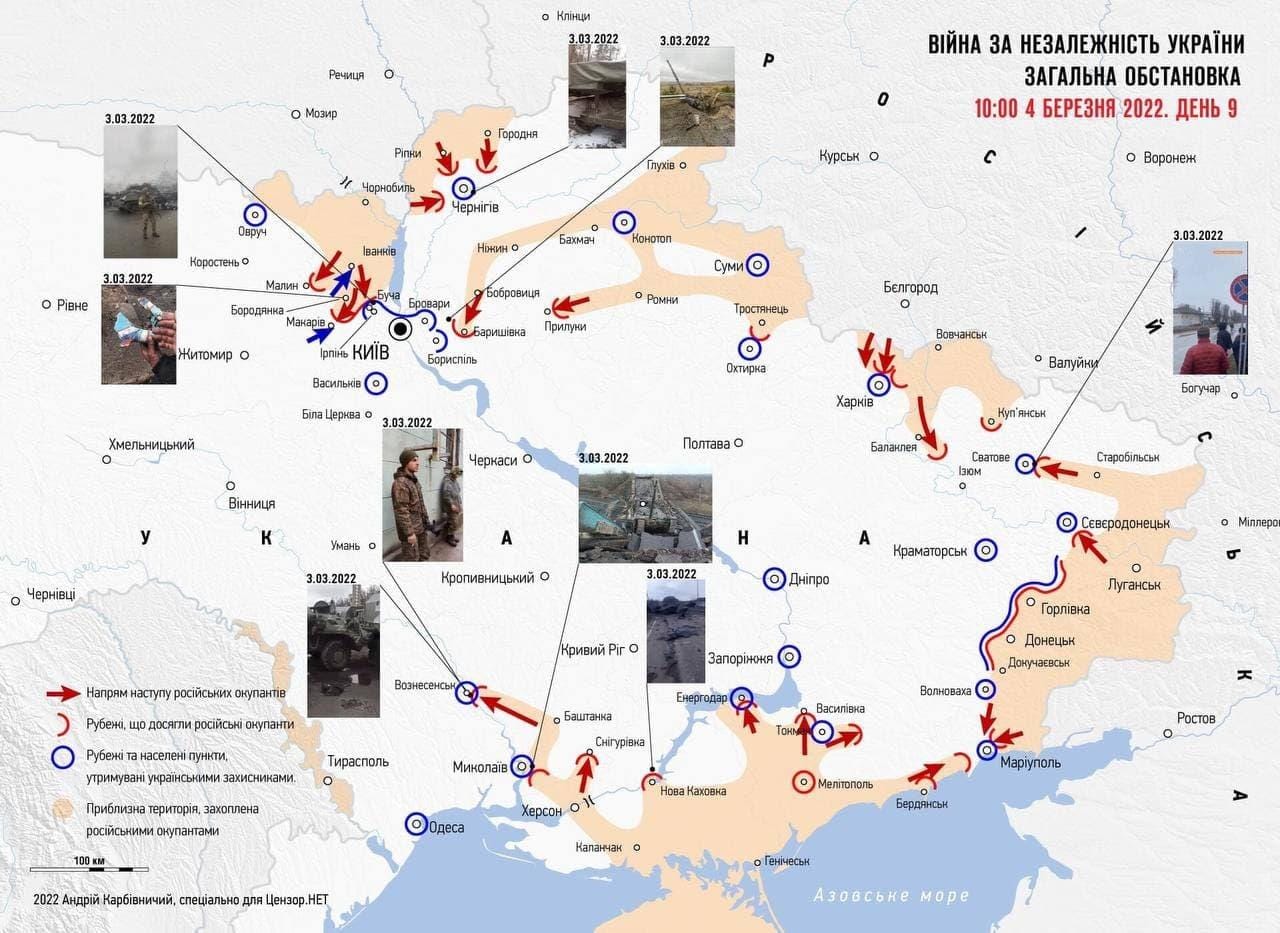
Lots of nerdy military updates w/ maps about the mess on Substack. Here’s one, if you’re interested. And this one on Facebook w/ links to many others.
This is prob the best map I’ve come across, if you don’t want to read about it.
***
Upon recovery from a bit of cred squidginess following yesterday’s gush over the strafing of a nuclear power plant in Zaporizhzhia, it occurs to me that, somewhere in the gaping void that is understanding Russia’s further invasion, there lie previously ignored linguistic possibilities of potential benefit to all.
Despite their ever-increasing presence in everyday life, weirdly rendered place names and surnames are most annoying. And they are notoriously inaccessible to monolingual laypeople who rely on Chuck at CBS and his low-frequency off camera stand-up jargon, i.e.:
What the hell was that?
How would Chuck pronounce Vydubychi or Kropyvnytskyi or Pa-lya-ny-tsia?
When it comes to written news reports, a corpus analysis (n ≈ 1 zillion words) reveals that Russia-invasion news reports contain startlingly high proportions of certain difficult-to-process impenetrable features – including extra hard-to-pronounce letter combinations and weird-looking first- and last name suffixes relative to baseline genres of written and spoken English.
It is at best linguistically irresponsible – at worst it is stupid journalistically – to simply ignore, mechanically transcribe and/or copy + paste letter combination features that are recalled and comprehended at lower rates than excerpts without these features, even for experienced experts.
So, edit problematic features out. Just spell it. This is war, for Chrissake, not a classroom at NYU. Use Google Maps for place names.
Conserve letters: Zaporizhia. There’s no good reason for double up “zhs.” Don’t repeat “ys” in surnames, except Zelenskyy — but not Zelenskiy, Zelenskyi. Maybe just write Ze, or Z. The same goes for “is,” as in Iuliia [Mendel]. Her name is painful to look at, much less pronounce correctly, or even think about otherwise.



